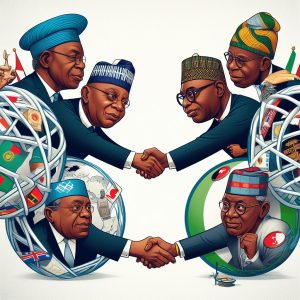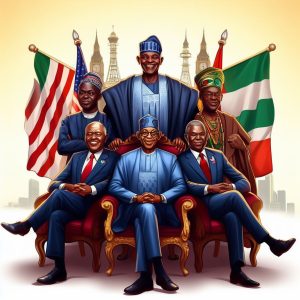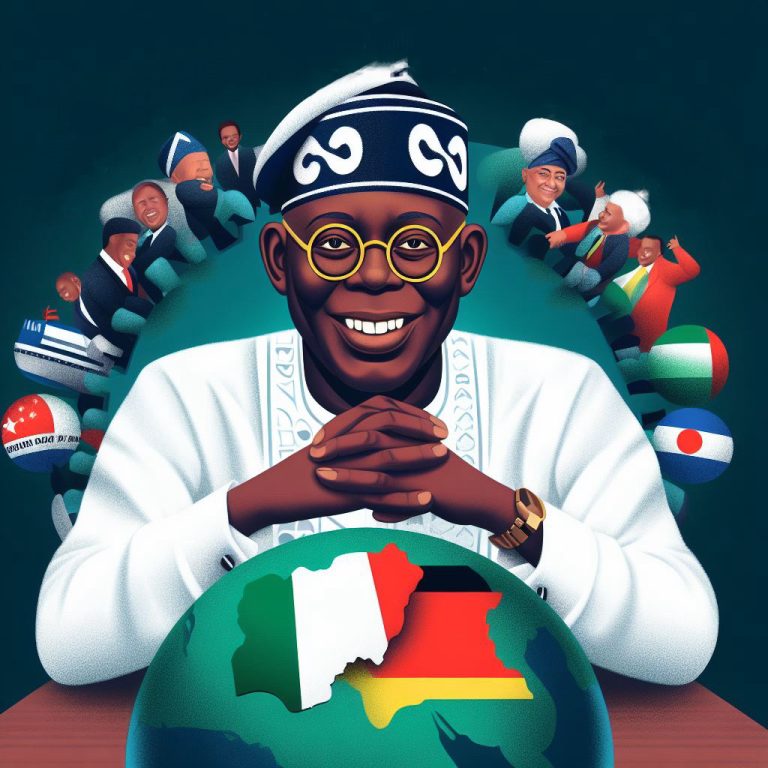Nigeria, a nation teeming with potential and diversity, stands at a pivotal juncture in its history. With a population exceeding 200 million and a GDP surpassing $400 billion, it’s undeniable that Nigeria is a regional powerhouse in Africa. However, the complexities and challenges that have punctuated its bilateral relations with the world have been undeniable, raising questions about the country’s future trajectory.
Bilateral relations serve as the lifeblood of a nation’s diplomacy, playing a pivotal role in shaping its economic development, security, and global standing. In the Nigerian context, these relations have not always been smooth, often tainted by conflict and discord with neighboring countries and key trading partners. Yet, President Bola Tinubu, who assumed office in May 2023 following a contentious election, has made it abundantly clear that enhancing Nigeria’s bilateral relations is at the forefront of his agenda.
One of President Tinubu’s notable approaches has been an extensive outreach to countries across Africa, Europe, Asia, and the Americas. This approach seeks to strengthen existing relationships and uncover new opportunities for trade, investment, and cooperation. High-profile meetings with leaders including German Chancellor Olaf Scholz, U.S. President Joe Biden, Chinese President Xi Jinping, South African President Cyril Ramaphosa, and Indian Prime Minister Narendra Modi have been instrumental in fortifying Nigeria’s global connections.
Moreover, Nigeria’s participation in various multilateral forums and initiatives underscores its dedication to global peace, security, development, and cooperation. President Tinubu’s leadership within the Economic Community of West African States (ECOWAS), co-hosting the Africa Investment Forum, involvement in the G20 Summit, support for the African Continental Free Trade Area (AfCFTA), endorsement of the Paris Agreement on Climate Change, and contributions to United Nations Peacekeeping Operations illustrate the nation’s proactive role in addressing regional and global concerns.
The results of these endeavors have been palpable, with Nigeria witnessing substantial improvements in its diplomatic relations, trade and investment, and security. It has also garnered greater respect on the international stage as it plays a constructive role in addressing critical issues. Yet, challenges remain and room for further improvement is evident.
To continue this positive trajectory, Nigeria must maintain its pursuit of reforms that enhance governance, economic stability, infrastructure, and human capital. Striking a delicate balance between its interests and values, especially in situations where they diverge, is essential. Diversifying partnerships and engagements, including with less familiar or friendly nations, will further fortify its position.
Nigeria’s bilateral relations serve as a means to an end, not an end in themselves. The ultimate objective is to transform Nigeria into a prosperous, secure, democratic, and influential nation. Under President Tinubu’s leadership, the country is taking significant strides toward this goal. In the dynamic world of international relations, Nigeria is firmly positioning itself as the giant of Africa, ready to embrace the opportunities and challenges that lie ahead.

